new posts in all blogs
Viewing: Blog Posts Tagged with: Latina, Most Recent at Top [Help]
Results 1 - 7 of 7
How to use this Page
You are viewing the most recent posts tagged with the words: Latina in the JacketFlap blog reader. What is a tag? Think of a tag as a keyword or category label. Tags can both help you find posts on JacketFlap.com as well as provide an easy way for you to "remember" and classify posts for later recall. Try adding a tag yourself by clicking "Add a tag" below a post's header. Scroll down through the list of Recent Posts in the left column and click on a post title that sounds interesting. You can view all posts from a specific blog by clicking the Blog name in the right column, or you can click a 'More Posts from this Blog' link in any individual post.

By: Lisa Alvarado,
on 3/5/2008
Blog:
La Bloga
(
Login to Add to MyJacketFlap)
JacketFlap tags:
interview,
women of color,
women's studies,
playwriting,
women and performance,
Teatro Luna,
Latina,
Johanny Vázquez,
playwriting,
women and performance,
Johanny Vázquez,
Teatro Luna,
Latina,
Add a tag
Teatro Luna Fabulousness!
Teatro Luna has a BRAND NEW SHOW opening on March 6th, but you can catch it now! This Saturday and Sunday see a sneak preview of Teatro Luna's most intimate show yet... SOLO TU, a collection of four interwoven solos all about different women's experiences with PREGNANCY.One woman thinks she's finally built the perfect family - Mom, Dad, Cute Kid- until an invasion of mice makes her wonder what's really going on. Another woman finds herself caught up in the worst kind of Baby-Daddy-Single-Mama Drama. Meanwhile, a woman in her third year of trying to get pregnant decides her pregnant friends make her want to vomit, and her close friend wrestles with pro-life activists, hospital robes, and how she feels about having an abortion in her 30's.Saturday @ 7:30 pm and Sunday @ 6pm
SHOW RUN: March 6-April 6 2008 Thursdays, Fridays, Saturdays @ 7:30 pm Sundays @ 6pm Chicago Dramatists 1105 W. Chicago Ave, at Milwaukee Tickets $15, Student and Senior Discount on Thursdays and Sundays only, $10 $12 Group Sale price, parties of 8 or more For tickets, visit www.teatroluna.orgMind, you the company is filled with talented, writers and performers, and it was rough to pair down, but gente, enjoy this interview with three of Teatro Luna's members, Diana Pando, who does administration for the group as well as writing, Tanya Saracho and Diana Herrera, both writers/actors.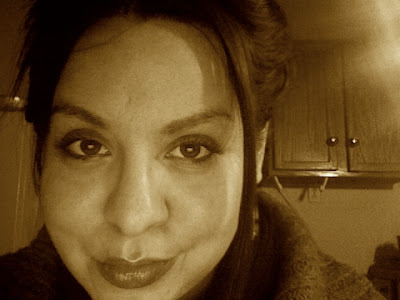 DIANA PANDO
DIANA PANDO
Talk about the differences in each. Is there a genre you feel is your "favorite?"As an emerging writer, I think my strengths are poetry and fiction writing. I’m dabbling in playwriting because I’m absolutely fascinated by creating dialogue and having actors bring the characters to life. Even though I’ve been doing theatre administration for Teatro Luna they teach me so much about the process.Talk a little about Proyecto Latina. What do you hope it provides for community writers, and book lovers?Proyecto Latina is a wonderful community based initiative between Tianguis Bookstore, Teatro Luna and myself. This open mic takes place every 3rd Monday of the month at Radio Arte and it’s a place for Latina’s to come out and show off their talent whether it’s poetry, fiction writing, belly dancers and Hula Hoopers it’s an open mic that brings together emerging and established Latinas in the arts to share, explore and encourage their creative pursuits. We are impacting that next generation by giving them an outlet to show off their creativity. Irasema Gonzales, owner of Tianguis Bookstore, has done an amazing job of lining up some the best features. There’s even a chismé box where you can drop your anonymous chismé and we read them during the open mic. Please drop in and check it out. Log on to http://www.tianguis.bizWhat are you sources of inspiration? A source of inspiration for me is walking through the city. I’m a big fan of long walks despite a toe spur gone amuck. Anyway, too much information. Friends always look at me with suspicion when I tell them we are just three blocks away. Rightfully, so I guess. Three blocks is the equivalent of ten blocks for me. I’m a wanderer. I love to look at people, places and things. Me embobo luego, luego, especially when I’m in Mexico City. There is nothing like being in the Zócalo on a rainy day. Definitely inspires and leaves me drenched. I always forget my umbrella…What's the role of female friendship in your daily life and as a writer?Funny you should ask this question. It’s my lifeline! I can’t go back to anything else. In 2002, Irasema Gonzales invited me to see a reading of Sandra Cisneros up at Loyola. I was feeling a little lazy and it was cold out. Thankfully, she dragged me out there anyway. It was an amazing reading and what came out of it was such a blessing. After the reading Sandra was signing her book and answering questions. There was this annoying girl with a red shirt talking and talking to Sandra. “Hurry Up” I wanted to yell “We want to talk to Sandra too!” The line finally began to move and when we got there Irasema asked about writing groups and Sandra told us to connect with the woman in red. The woman in red is now a dear friend and fabulous writer. Our writing group consists of Lizann Acosta, Professor of World Literature & Teatro Luna Artistic Associate, Irasema Salinas, Tianguis Bookstore Owner, Family Dr. Yolanda Cardenas, Magda Banda Ph.d Candidate in Comparative Education and me. Sandra probably has no idea but she’s our writing group madrina.Where would you like to be creatively and professionally in ten years? In ten years, I will be producing consistent work in different generes of writing, collaborating with other Latinas on projects, encouraging Latino professionals to support the arts through philanthropy, create the Mariposa Atomica Arts Fund and do advocacy work for the arts. Latinos enrich the arts in the city of Chicago and it’s important that we support and cultivate those efforts.Tell us something not in the offical bio.I have an 800 pound Dalmation and he’s more than a decade old, I’m a mascara junkie and my favorite mantra is vision + action = Reality.
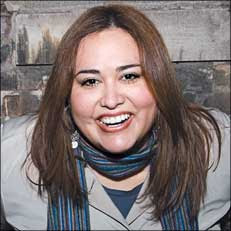 TANYA SARACHO
TANYA SARACHO
(Courtesy Time Out Chicago)
Talk about the differences in each. Is there a genre you feel is your "favorite?"I'm mostly a writer for the stage. I don't have a talent for poetry. I respect poets immensely. To be able to structure and mold words aurally and rhythmically is a talent I truly admire.Talk a little about Proyecto Latina. What do you hope it provides for community writers and book lovers?I can't believe we've been doing Proyecto Latina for two years now. I remember the first time we did it, and how we filled Meztli Cafe and how every one was excited about every performer. You could feel the electricity in the place. Not much has changed, the location perhaps, but people are still excited to hear and support new work by Latina writers-of all genres, not just poetry. It provides a much needed outlet and cocoon to nurture our work.What are you sources of inspiration? What's the role of female friendship in your daily life and as a writer?All my plays are about females. I don't think that's limiting in the least; They all deal with a female central character and I can't deny it, each and every one has at least a bit of coloring that I draw from the women in my life. My mother, my sisters, my Teatro Luna sisters (who are more than friends)... I take the ribbons of vernacular from their mouths and plaster them on the stage. Their words are much more brilliant than mine will ever be. They are wise and funny and flawed. It's my friend's Yadira's zinger lines and her obsession with the perfect meal. It's my friend Miranda's struggle for her dreams and the sting failure causes. It's Tatiana's depression and her unwillingness to come to surface, but her attempt at it every day. It's my friends navigating their contradictions. Those things are much more interesting than anything I'd come up with on my own. Now I might piss people off. Make them angry because I just take one tiny little shade of blue here, or a smudge of brown and they think that's definitive of my opinion of them. But that's never the case. I am often in trouble for it though.Where would you like to be creatively and professionally in ten years?I'd love to be feeding myself fully with the work. Sharing it with as many people as possible. In whatever form. Whatever that means. Whether bigger stages. More productions. Far reaching publications. I'm not sure what that means, but I'd like to have figured it out and be in a place to open doors for other people. Be on the founding stage of programming that makes sure our voice is being heard. In ten years I would have liked to have gotten out of my myopic state and attempt a period piece about hoodoo in the American South during the late 1800's. Nothing to do with Latinidad. That's just a little project that has been rattling in my brain. But it's a long time for that one. In a decade, I'd like to have a cannon of work I can be proud of, but having the best yet to come. Also, in ten years Teatro Luna will be an institution; financially healthy, administratively strong, artistically excellent. Still doing the work.Tell us something not in the official bio.I am addicted to divination and getting my cards read. Every week. Every. Week. My name is Tanya Selene Saracho Armenta, and I am a divination addict.
 DIANA HERRERA
DIANA HERRERA
Talk about the differences in each. Is there a genre you feel is your "favorite?"I don't work too much in poetry, except what I write in my journals that will never been shown to ANYONE 'cause it's really bad poetry! But here we go with the other two. My favorite has to be playwriting because I think I have a God complex. Seriously, it's intoxicating to create this whole world and populate them with these people that use YOUR WORDS to express themselves…then if you're lucky you get a chance to see it LIVE!! How cool is that? Also, though…there is that moment of CONNECTION. When you make a bulls-eye with the hearts of your audience members. There is nothing as gratifying as when someone comes up to me after a show and tells me, you were writing about me. I wrote a piece in "The Maria Chronicles" about visiting my brother in prison, and after shows I had several people tell me about their experiences with family members in prison. One lady told me that after my piece she reconciled with her brother and visited him for the first time in years. That really touched me. It might sound trite, but it's true…writing plays for me is like reaching out and saying "I'm not alone, you are not alone…for this moment we will be taking this journey together". I write because sometimes these feelings I have are so intense it becomes necessary to overflow them onto paper. I chose to share my journey, though, instead of locking it up in a diary (well, except my poems. Those don't need to be shared!).So where does performance fit in? To me, performance is another level of connection with the audience. It's very cathartic, and it's wonderful because you get instant gratification…laughter during a one-liner delivered just right, silence during a dramatic moment…applause. Oh, the applause! Performing is such a high, because you are on this tightrope wire where any sudden change (even something like the theater being too hot or the seats too uncomfortable) will distract your audience…you have to EARN their attention…but once you've earned it what a RUSH.Talk a little about Proyecto Latina. What do you hope it provides for community writers and book lovers?I've enjoyed participating in Proyecto Latina in the past…unfortunately I've been absent from the monthly events for a while. However, I think it's such a wonderful opportunity for new artists…and I LOVE that there is a set limit of people that can perform, that it's a 5 minute time limit and that there is a featured performer. That is key…to be able to enjoy these "tastes" of performance without being overwhelmed by a 4 hour open mike. I know being able to hear various artists has inspired my own writing. I'm hoping I can start attending again…I've missed it!What are you sources of inspiration? What's the role of female friendship in your daily life and as a writer?My family is a HUGE source of inspiration for me—we have this carefully honed sense of humor that I use in my writing. They are very supportive of me—I talk a lot about them in my pieces and I haven't been disowned. Yet. I love comedy, so of course I'm all over female writers like Tina Fey—even watching the old episodes of The Carol Burnett Show gives me inspiration as a writer. Currently I'm working on a two-woman show, and we are using "The Search for Signs of Intelligent Life in the Universe" as inspiration…Jane Wagner and Lily Tomlin collaborated on this piece, and it's amazing.Where would you like to be creatively and professionally in ten years?Creatively, I'd like to still be writing and getting my work produced…if I can perform occasionally that would be a bonus. It's hard because I do have a family now, and I'm the primary breadwinner…so not only do I have to balance work with family, I have to find time to write and stay involved in projects as well. The good thing is that my husband is VERY supportive—in fact, he's the one that keeps pushing me to take on these projects and he's great about covering the night shifts at home, taking care of our daughter and the house. So it's just a matter of figuring out what the next step is…the point is, I can't figure out next year, much less TEN years from now!!Tell us something not in the official bio.I am a HUGE fan of science fiction—my favorite authors include Ray Bradbury, Richard Matheson, HP Lovecraft, Charles Beaumont…and I LOVE TV shows like "The Twilight Zone", "Heroes", "Lost"�anything with a sci-fi edge to it! And yes, I was one of those geeks that stood in line for Star Wars tickets. Han Solo was my first crush.
xxxxxxxxxxxxxxxxxxxxxxxxxxxxxxxxxxxxxxxxxxxxxxx
Women and Creativity Conference/Lisa Alvarado Shameless Self-Promotion Department Gente: I've been blessed enough to have been asked to perform
The Housekeeper's Diary at the conference --
Friday, March 7, at 8 PM at the
National Hispanic Cultural Center's Roy E. Disney Center for the Performing Arts, as well as a reading for high school students at the Center's Wells Fargo Auditorium, Monday, March 10th at 10 AM.
Conference Info:
Women and Creativity 2008 is organized and presented by the
National Hispanic Cultural Center in partnership with more than 25 local arts organizations, artists, writers and independently owned-business. This year, we have an inspiring offering of more than 50 exhibitions, performances, workshops, classes, and engaging discussions in Albuquerque and Santa Fe.
Women and Creativity partners invite you to dedicate an afternoon, evening or entire weekend in March to attend events and workshops that awaken and nourish your own creativity and support the creativity of our communities. Although we shine a special light on women’s creativity during this festival, we invite and encourage the participation of men at all events.
The National Hispanic Cultural Center, along with our partners in
Women and Creativity 2008, believe that creativity, art and self-expression are central to sustaining healthy individuals, organizations, business and communities – so, join in and celebrate the creative women in your community and the creativity inside yourself.
There will also be a fabulous
PEÑA FEMENINA Sunday, March 9th at
NHCC's LA FONDA DEL BOSQUE;Other Artists:
Alma Jarocha,
Leticia Cuevas, Anabel Marín, Otilio Ruiz, Victor Padilla
Jessica López
Bailaora Xicana, Flamenco
marisol encinias, vicente griego, ricardo anglada
Lenore Armijo
Angélica
Cuevas
National Hispanic Cultural Center 1701 4th St, SW Albuquerque, New Mexico
More Conference News from Demetria Martinez
On Saturday, March 8 at 3 p.m. the first-ever Spanish-language anthology of work by women who reside in New Mexico will be unveiled at the National Hispanic Cultural Center in Albuquerque. Titled Metamorfosis, the book was co-founded by Demetria Martinez, Rosalee Montoya-Reed and Maria Nieves de Abajo Bajo. Please join us to celebrate International Women's Day, poetry, the Spanish language and creativity. A reception will follow. Please RSVP at 724-4777.
And Lastly, news from La Divina, Johanny Vasquez
Hola to Everyone: I will be participating at the Nuestras Voces: Women's Poetry Night at the University of Illinois Urbana-Champaign this Thursday, March 6, 2008. The event will take place at from Caffe Paradiso7:00 to 9:00 pm. This will be my first time at U of I, so I'm extremely excited. If you live in the area or know people that live in Urbana/Champaign, please come by or let them know. For more information got to my blog at:http://johannyvazquezpaz.blogspot.com/ or to the University Site at:
http://www.mechauiuc.org/ThursdayChicanasLatinasInTtheArts.html Hasta la vista, Johanny
Lisa Alvarado

By: Lisa Alvarado,
on 2/13/2008
Blog:
La Bloga
(
Login to Add to MyJacketFlap)
JacketFlap tags:
Uof AZ Press,
poetry,
culture,
anthology,
Palabra Pura,
Latino,
Latina,
Francisco Aragón,
spoken word,
performance,
Add a tag
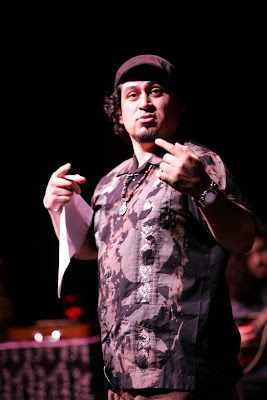
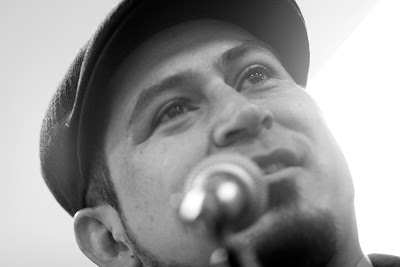
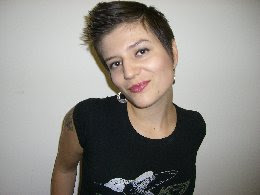 Palabra Pura, Chicago's home for cutting edge, innovative Latino poetry is evolving in exciting ways, with its 2008 calendar of stellar talent solidly in place. While still basing itself at the California Clipper, Palabra Pura will begin to also hold events at Latino venues throughout the city. This month, join nationally know poet and performer, Tim Z. Hernandez and Chicago actor, poet and activist, Stephanie Gentry-Fernandez.
Palabra Pura, Chicago's home for cutting edge, innovative Latino poetry is evolving in exciting ways, with its 2008 calendar of stellar talent solidly in place. While still basing itself at the California Clipper, Palabra Pura will begin to also hold events at Latino venues throughout the city. This month, join nationally know poet and performer, Tim Z. Hernandez and Chicago actor, poet and activist, Stephanie Gentry-Fernandez.
Wednesday,
February 20th. 8 pm Decima Musa Restaurant
1901 S. Loomis, St. Chicago, IL
About the poets: Tim Z. Hernandez is a writer and performer originally from central California. His writing and performance texts have appeared in numerous anthologies and publications, and his performances featured at prestigious venues across the nation, including: LA’s Getty Center Museum, The Loft Literary Center in Minneapolis, Stanford University, and the Jack Kerouac School of Disembodied Poetics. In the past, he has been commissioned by major groups such as the United Way of Greater Los Angeles to write and perform his original plays on issues of homelessness and poverty. Currently, he’s working in tandem with Poets & Writers Inc, and California Center for the Book, offering bilingual poetry workshops across the United States.
He is the recipient of several notable awards including: 2006 American Book Award for his debut collection of poetry Skin Tax, San Francisco Foundation’s James Duval Phelan Award, a Best Solo Production Award for his one man show, Diaries of a Macho, and the Zora Neal Hurston Award for writers of color dedicated to their communities. In the interest of artistic development, Hernandez’s focus is on excavating stories that bring to light the limitless potential of the human capacity, stories of physical and metaphysical journeys, with special attention to marginalized populations. When he’s not busy teaching creative writing and performance, he’s touring the country, collaborating with his word-music-theater collective, Brown Lotus, and offering workshops to Universities, arts groups, cultural centers, foundations, and libraries. Tim holds a B.A. in Writing & Literature from Naropa University, the first accredited Buddhist School in the west.
Currently, he resides in Boulder, Colorado with his wife and two daughters.
What People Are Saying About Tim Z. Hernandez
"Tim Hernandez is one of the finest and most exciting new talents to emerge from the new generation of Latino writers!”- Bloomsbury Review, Ray Gonzalez
“It’s too reductionistic to call Tim Hernandez a performance poet…though his voice and rhythms surely benefit from the energy behind a microphone, the complexity of his ideas merit the slower pace study made possible through the written pages of Skin Tax.” - El Paso Times Book Review Rigoberto Gonzalez
“Tim Hernandez is a dynamic force as a writer and performer!” - Gary Soto Author of, Nickel & Dime
“Hernandez is a poet of obvious and quickly realized skills…his images are brilliant, sharp, and concise, his language spare yet rich. Poetry of the here and now, Brown Lotus is the kind of task that should have been undertaken long ago!” -Amiri Baraka, Author of, Transbluesency
“I like Tim’s boldness, his willingness to be raw and trust the content of the poem to make it real and legitimate, his words sizzle and spark with excitement, targeting with a relentless passion his desire to express what he is trying to convey.” - Jimmy Santiago Baca, Author of, A Place To Stand
“[Tim Hernandez] …represents a whole new direction in the Latino literary world!” - Juan Felipe Herrera, Author of, Notebooks of a Chile Verde Smuggler, and 185 Reasons Mexicans Can't Cross the Border
“[Skin Tax] is poetry not for delicate sensibilities, unafraid, it dares to stand out and speak of subjects commonly eschewed by other poets.” - Midwest Book Review
xxxxxxxxxxxxxxxxxxxxxxxxxxxxxxxxxxxxxxxxxxxxxxxxxxxx
Stephanie Gentry-Fernandez is a poet and performer from the South Side whose male side you may recognize from Teatro Luna's recent production of "Machos." She has a deep personal commitment to anti-oppression work and currently works at the Broadway Youth Center.
xxxxxxxxxxxxxxxxxxxxxxxxxxxxxxxxxxxxxxxxxxxxxxxxxxxx
Letras Latinas, The Wind Shifts and a National Tour!
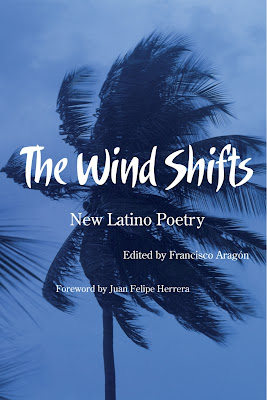
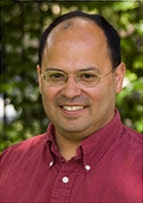
“In the hour of extremes, long live these brave wordsmiths of American letters.”
— Sandra Cisneros
February 23, 2008, Palm Beach, FL
@The Society of the Four Arts
Eduardo C. Corral
Kevin A. González
Sheryl Luna
May 31, 2008, Minneapolis, MN
@The Loft Literary Center
Urayoán Noel
Carl Marcum
Adela Najarro
Emmy Pérez
September 25, 2008, Seattle, WA
@Richard Hugo House
Richard Blanco
María Meléndez
Steven Cordova
Deborah Parédez
“The Wind Shifts: New Latino Poetry ON TOUR” is supported in part by the Ford Foundation, JP Morgan Chase, the Andy Warhol Foundation for the Visual Arts and Southwest Airlines through a grant from the NALAC Fund for the Arts.
Letras Latinas is the literary program of the Institute for Latino Studies at the University of Notre Dame. The Guild Complex is a community-based literary organization in Chicago.
The Wind Shifts gathers, for the first time, works by emerging Latino and Latina poets in the twenty-first century. Here readers will discover 25 new and vital voices including Naomi Ayala, Richard <!--- inline quote --->
Blanco, David Dominguez, Gina Franco, Sheryl Luna, and Urayoán Noel.
The writers included in this volume have published poetry in well-regarded literary magazines. Some have published chapbooks or first collections, but none had published more than one book at the time of selection. This results in a freshness that energizes the enterprise. Certainly there is poetry here that is political, but this is not a polemical book; it is a poetry book. While conscious of their roots, the artists are equally conscious of living in the contemporary world—fully engaged with the possibilities of subject and language. The variety is tantalizing.
There are sonnets and a sestina; poems about traveling and living overseas; poems rooted in the natural world and poems embedded in suburbia; poems nourished by life on the U.S.–Mexico border and poems electrified by living in Chicago or Los Angeles or San Francisco or New York City. Some of the poetry is traditional; some is avant-garde; some is informed by traditional poetry in Spanish; some follows English forms that are hundreds of years old. There are love poems, spells that defy logic, flashes of hope, and moments of loss. In short, this is the rich and varied poetry of young, talented North American Latinos and Latinas.
xxxxxxxxxxxxxxxxxxxxxxxxxxxxxxx
ABOUT THE ANTHOLOGY
“In the hour of extremes, long live these brave wordsmiths of American letters. Hallowed be the poets when the news is diffused in the name of susto. Viva the citizens of truth. Hallelujah the devotees of language, the languished souls enamored of the syllable.” —Sandra Cisneros, author of The House on Mango Street
“The poets in this anthology seem as though they just want to write poems, not specifically Latino poems. They are much too cross-pollinated for that—we all are, if truth be told—which is what makes that synthesis possible, the marvelous marbling at the core." —Aleida Rodríguez, author of Garden of Exile
“Here it is again, the shock of the new, eager as always to unsettle the present, to reconfigure the past while redefining the future. Ah, the impetus of the young!” —Ilan Stavans
“At last, a 21st century anthology that confirms the breadth and depth and diversity of contemporary Latino/a writing. The poems in this collection defy any stereotypes about ‘Latino poetry’ and testify to the rich variousness of the American Latino/a experience. Readers—rejoice!" —Valerie Martínez, author of Absence, Luminescent and World to World
“With jagged beauty, this collection expands our consciousness—documents and honors lives often absent from American poetry. In these pages, we join souls in struggle, almas luchando." —Pat Mora
"The title of the ravishing collection of poems by 25 Latino and Latina writers can be read as an allusion to change and to the fact that poetry is a force, like wind, that knows know borders. Whether inspired by family, love, despair, poems by Rilke, or a painting by Jose Clemente Orozco, the poets gathered here are involved in the infinite possibilities of language."
— Booklist
"This is a compelling and exhilarating addition to Latino letters."� El Paso Times
Lisa Alvarado

By: Lisa Alvarado,
on 10/3/2007
Blog:
La Bloga
(
Login to Add to MyJacketFlap)
JacketFlap tags:
luis j. rodriguez,
storytelling,
poetry,
memoir,
authenticity,
Tia Chucha's,
essay,
Chicano,
Latino,
Chicano history,
political art,
Latina,
Latino writers,
Reyna Grande,
Add a tag

Tia Chucha's Events for October 2007
Author Reading with Anna Marie Gonzalez
Saturday Oct. 6th at 2 p.m.
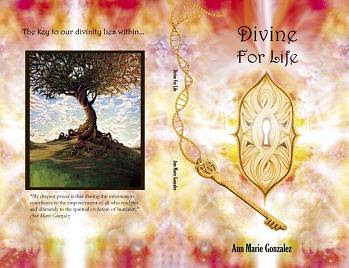
Ann Marie Gonzalez will present her new book and discuss its purpose. Divine for Life is a book written for people in search of divinity and understanding of who we are and what we are capable of. It is the Divine being's guide to life. This book will open doors to the truth of our existence.
"My deepest prayer is that sharing this information contributes to the empowerment of all who read this and ultimately to the spiritual evolution of humanity." Ann Marie Gonzalez
Book Reading with Mario Garcia
Saturday October 13, 2007 at 2 p.m.

Author and professor of History and Chicano Studies at UCSB Mario Garcia will present and read from his newly released book The Gospel of Cesar Chavez: My Faith in Action.
This is a book of spiritual reflections, prayers, or mantras from Cesar Chavez, one of the great spiritual leaders of our time. Perhaps the best-known Latino historical figure in the United States, a key aspect of why he did what he did was his faith. He was a devout Catholic and a man of deep moral and spiritual values, which is what drove him to seek basic rights for farm workers as well as recognition for their human dignity as children of God. Now, for the first time, The Gospel of Cesar Chavez calls attention to the spiritual side of this great leader through his own words.

Special Day of the Dead Workshop # 1
Satuday Oct. 20th from
11 a.m. to 1 p.m.
The first workshop of our 3 piece Dia De Los Muertos celebration!
-Danza Temachtia Quetzalcoatl
-Intro to group
-Historical Prospective of Day of the Dead
-Sugar Skull Workshop
Come join Danza Temachtia Quetzalcoatl as we introduce ourselves to the community and provide a historical and cultural perspective of the importance of Dia de los Muertos. This visual presentation will close with a sugar skull making workshop. It's fun for Everyone!
All the workshops are free!
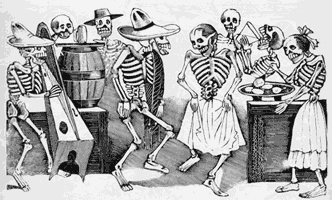
Poetry Reading with Jim Moreno: The Artivist Movement
Saturday October 20th at 2 p.m.
Poet Jim Moreno will present and read from his newly released poetry collection, Dancing in Dissent: Poetry for Activism.
Dancing in Dissent is an artivist's (artist and activist) collection of poetry resonating with the legacy of speaking out against injustice and oppression. Moreno is a member of San Diego's Langston Hughes Poetry Circle and a past board member of the African American Writers and Artists.
He teaches poetry workshops for gang youth in lockups, children in after-school programs and adults who are beginning or practiced poets.
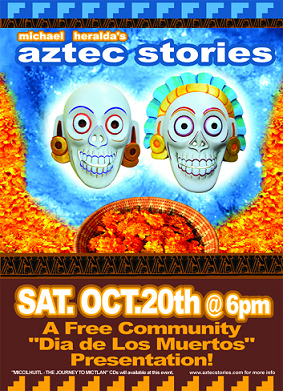
Michael Heralda Performs Aztec Stories
Saturday Oct. 20, 2007 at 6 p.m.
Come and experience the origins of this very special ceremony from the indigenous perspective in a presentation of music, songs, and stories.
The ceremony has evolved due to European influences, the artistic influence of Jose Guadalupe Posada's fanciful stylizations, and the commercial forces of our "modern" world. This program is for those interested in learning about the origins of this ceremony. It is also an opportunity to help establish a "balance" between today's modern practice and the ancient ceremony's true relevance and importance. You will hear things that touch your heart and at times seem very familiar. This is the ancient voice that you hear intuitively speaking to you from the past through your heart. Some of the information revealed in this presentation may surprise you, and some may validate an intuitive understanding you possess and have contemplated.
Special Day Of The Dead Workshop # 2
Sunday Oct. 21st from
11 a.m. to 1 p.m.
The second day of our 3 piece Dia De Los Muertos celebration
-Danza Temechtia Quetzalcoatl
-Historical Perspective of Danza
-3 groups
-dance, song, drumming
Day II of our Dia de Los Muertos workshop introduces the importance of danza in Day of the Dead celebrations. After the discussion, each participant is invited to learn an element of danza-drumming, dancing and/or Mexica songs-themselves!
All workshops are Free!
Special Day of the Dead Workshop # 3
Monday Oct. 22nd from
6:30 p.m. to 8:30 p.m.
This is the last workshop of our 3 piece Dia De Los Muertos celebration!
-Danza Temachtia Quetzalcoatl
-Mexica story telling
This will be a review and expansion of first 2 workshops. Day III of our workshop will continue to teach the elements of "la danza" and will close with Mexica storytelling for all!
On this final day of the workshop, Danza Temachtia Quetzalcoatl will host a community ceremony for all its participants. Traditional face painting will begin the celebration and everyone who participated will have a chance to share what they have learned!
All workshops are free!
Friday Oct. 26th at 8 p.m.
Join us for our famous Open Mic Night, this week featuring poet Thomas Gayton, along with some of the local poets and musican performers!
Works and Performances.
Thomas has read his poetry on Pacifica Radio, KPFK-Los Angeles and has performed with Jazz greats Charles McPherson, cousin Clark Gayton and Daniel Jackson. He has taught verse writing at the Writing Center in San Diego, founded the Poetry Workshop in La Jolla, California, at D.G. Wills bookstore and also cofounded the San Diego Poets' Press.
Book Reading with Beto Gutierrez
Saturday Oct. 27th at 1 p.m.
Author Beto Gutierrez will read and discuss his newly published book A Sentence with the District.
A collection of essays based on actual experiences of a former at-risk youth who became an inspired high school teacher in the Los Angeles Unified School District, Gutierrez sheds insight from a first person point of view that others dare not mention. A must-read book that advocates educational equity and quality.
Sugar Skull Workshop Hosted by Norma
Sunday Oct. 28, 2007 at 12 p.m.
Come experience a hands-on workshop for the whole family in preparation for Dia de los Muertos (Day of the Dead) with the making of Sugar Skulls, a centuries-old tradition in Mexico that plays an important symbolic role in this holiday. You are welcomed to join us in tribute of this fun and mysterious holiday.
Tia Chucha's Centro Cultural
10258 Foothill Blvd.
Lake View Terrace, CA 91342
(818) 896-1479
www.tiachucha.com
e-mail us at: [email protected]
Donate to Tia Chuchas! Tia Chucha's Centro Cultural & Bookstore | 10258 Foothill Blvd. | Lake View Terrace | CA | 91342
xxxxxxxxxxxxxxxxxxxxxxxxxxxxxxxx
Reyna Grande update
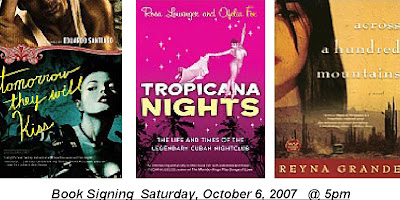
Under the Bridge Bookstore and Gallery
e-mail: [email protected]
When:
Saturday Oct 06, 2007
at 5:00 PM
Where::
Under the Bridge Bookstore and Gallery
358 West 6th Street
San Pedro, CA 90731
UNDER THE BRIDGE BOOKSTORE AND GALLERY CELEBRATES DEBUT AUTHORS!
RSVP not required
SPREAD THE WORD...
Join us as Eduardo Santiago, author of Tomorrow They Will Kiss; Rosa Lowinger, author of Tropicana Nights and Reyna Grande, author of Across A Hundred Mountains, read and sign their new books.
Our readings/booksignings are a great opportunity to meet an author, hear them read from their work, or purchase an autographed copy of their latest book. As always, our events are free and open to the public.
If you are unable to attend an event and are interested in purchasing a signed book please please give us a call at 310-519-8871 or contact us via email at [email protected]. We're happy to hold a book for you.
Some random autumnal thoughts...Here in the Midwest, there is always a clear sense of seasons changing, of the time and life broken into segments. Now on my walks, I see the start of red gold rustling in the trees, the yellow and orange suns of zempasuchitl, and in my dreams, the faces of loved ones on the other side reminding me to make an ofrenda. On my good days, I see my things linked as a whole, a cycle beginning and ending and beginning.
Somehow too, at middle age, I feel more and more an affinity with autumn, I seem more in touch with the fullness of things as they begin to pass away. Somehow in the still of winter, the expectation of spring, and the busyness of summer I forget to quiet myself and take in what's everyday beautiful ---the walk in the park near my house, the full moon veiled partially with papel picado clouds.
Maybe it because I know once again things will fall away soon into a wintersleep , it seems more important to take time to walk, feel the crunch of leaves and grass under my feet, the smell of wood smoke from neighbor's fireplaces. Maybe it's because I have enough experience remembering and forgetting this, that this year I'm writing it down.
Lisa Alvarado

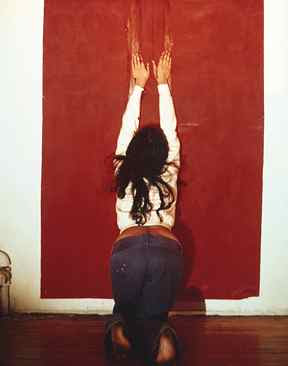
Ana Mendieta was a Cuban performance artist who lived in New York in the 1970’s. The title Where Is Ana Mendieta, not only refers to the suspicious circumstances of her death, but to the nonexistent presence of the work of women artists in mainstream exhibitions, to the absence of work that portrays the aesthetic rooted in Latino cultural identity.
Mendieta boldly explored women’s identity, sexuality, and spirituality in pieces that were deceptively simple. Her work was constructed from the elements themselves, dirt, water, and light in their most basic forms; her themes revolved around the ideas of burial, rebirth, submersion in the natural world. From a perspective beyond the dominant culture's construct of nation, a construct of governments, the hegemony of conquerors, Mendieta's work reverberates with a older, indigenous idea of nation. It challenges the viewer to envision an idea of nation and identity based on a direct relation to the Earth itself.
In a series entitled Tree of Life, Mendieta flattened herself against a large oak tree. She is naked, covered with gesso and paint to simulate tree bark. Where does the tree stop and Medieta begin? Where do we stop and our connection with nature begin? Simply done and deeply resonant. I immediately saw a connection between this piece and a Mexican/Chicano idea of rootedness to place that is not hemmed by borders, but by history and ancestral links to land, to nature itself.
In another, untitled series, Mendieta is shown in a series of photos. Again, she is naked, this time in an isolated field. Next to her is a skeleton. The photos show her climbing onto the skeleton, embracing it. She creates a powerful image of the life/death cycle, as well as a quintessential Latino commentary on mortality. At the heart of existence, life and death are united in an eternal embrace. In the midst of life, its fullness, its lushness, its sensuality, Death is constant companion. While modern, European-based culture constantly seeks to avoid aging and mortality, there are traditions that accept its centrality. Mendieta brilliantly illustrates that death is both the beginning and endpoint of all things.
Mendieta worked closely with a variety of feminist artists, but did not label herself as feminist, and I understand the reticence in using the label. The women's artistic community did not offer a truly supportive relationship, and while she had meaningful connections with individual artists, her work was not be adequately appreciated by feminist and post-feminist critics. In a nutshell, Mendieta did not invent a new relationship to body and Earth, she reclaimed an ancient one, but was never embraced by the 'larger' artistic community.
I was profoundly moved by her work. The work is poetry, visual poetry, poetry made flesh. These are clear, visceral, and direct images that I hope to use as a touchstone in my writing and performing, particularly in performing. I want to tell a personal and universal story with my body, and Mendieta has created a standard for me, as well as strengthening and deepening a physical lexicon.
Blocker’s writing is dry and extremely formal, making this difficult going as a reader, but don't be dissuaded by that. I wonder if some of the density of language was more an expression of Blocker's own inability to grasp and express the power and simplicity of Mendieta. However, the book sings when Blocker allows the work to speak for itself.
ISBN-10: 0822323249
ISBN-13: 978-0822323242
xxxxxxxxxxxxxxxxxxxxxxxxxxxxxxxxxxxxJane Blocker is a specialist in contemporary art and critical theory. She offers courses such as Art Since 1945, Contemporary Art, Alternative Media: Video, Performance, and Digital Art, as well as courses on gender and sexuality, and 20th century theory and criticism.
Her research has focused primarily on performance art as it developed concurrently with postmodern, feminist, and constructionist theories. Her first book, Where is Ana Mendieta? Identity, Performativity and Exile (Duke University Press, 1999), considers the artist's work in relation to the performative production of identity. What the Body Cost: Desire, History, and Performance. (Minneapolis: University of Minnesota Press, 2004), her second book, critically examines the historiography of mid-twentieth century performance. Her current book, called Seeing Witness: Essays on Contemporary Art and Testimony, examines the witness as a privileged subject position by analyzing installations, performances, photographs, and films by such artists as Alfredo Jaar, James Luna, Eduardo Kac, Christine Borland, Felix Gonzales-Torres, and Ann Hamilton.
In addition, she has published the following essays: "This Being You Must Create: Transgenic Art and Seeing the Invisible," Cultural Studies 17, no. 2 (2003): 192-209; "A Cemetery of Images: Meditations on the Burial of Photographs," Visual Resources XX, no. 2 (May 2004) ; "Binding to Another s Wound: Of Weddings and Witness," in After Criticism: New Responses to Contemporary Art, edited by Gavin Butt. (London: Blackwell, 2005); "Failures of Self-Seeing: James Luna Remembers Dino," Performing Arts Journal XXIII, #1 (January 2001):18-32; "The Art of Renters," in From Your House to Our House, exhibition catalogue (Atlanta: Nexus Contemporary Art Center, 1999); "Woman-House: Architecture, Gender and Hybridity in What's Eating Gilbert Grape?," in Camera Obscura 39 (November 1998):126-150; "Ana Mendieta and the Politics of the Venus Negra," in Farquhar, et al, eds. (Un)fixing Representation, special issue of Cultural Studies 12, #1 (January 1998):31-50; "The Bed Took Up Most of the Room," in Peggy Phelan and Jill Lane, eds., The End(s) of Performance (New York: N.Y.U. Press, 1997); and Nancy Spero/Leon Golub: Contemporaries, exhibition catalogue (Detroit, MI: Wayne State University, Elaine L. Jacob Gallery, 1997).
Lisa Alvarado

By: Lisa Alvarado,
on 8/8/2007
Blog:
La Bloga
(
Login to Add to MyJacketFlap)
JacketFlap tags:
spirituality,
poetry,
social commentary,
women of color,
Espada,
social change,
Latina,
Sister Chicas,
war literature,
Latino writers,
Girmay,
Add a tag
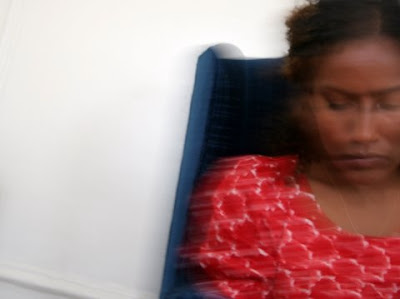
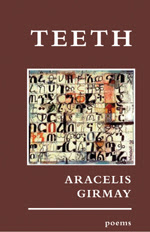 Aracelis Girmay writes poetry, fiction, & essays. Teeth, her collection of poems, was published by Curbstone Press in June 2007. Her poetry has appeared in Ploughshares, Bellevue Literary Review, Indiana Review, Callaloo, & MiPoesias, among other journals. Her collage-based picture book, changing, changing, was published by George Braziller in 2005. Girmay is a Cave Canem Fellow & former Watson Fellow. She teaches writing workshops in New York & California.
Aracelis Girmay writes poetry, fiction, & essays. Teeth, her collection of poems, was published by Curbstone Press in June 2007. Her poetry has appeared in Ploughshares, Bellevue Literary Review, Indiana Review, Callaloo, & MiPoesias, among other journals. Her collage-based picture book, changing, changing, was published by George Braziller in 2005. Girmay is a Cave Canem Fellow & former Watson Fellow. She teaches writing workshops in New York & California.
(That's the official bio, gente, but I think you'll love hearing Aracelis on Aracelis in a recent email I received.)
*****
"I've loved books & the idea of reading since I was little. The story goes "you used to memorize the books & sit & read from memory before you knew how to really read." I used to sleep with my books. I LOVED to read, and then, I used to tell my younger brother stories. My grandmother still has folders of stories I'd write at her house. When I was 13, though, I read The Bluest Eye, I remember thinking: Oh, god, we're allowed to write like that? The way we think? The way people talk? The ways my people talk? Oh, really? It opened up this door of permission---I didn't know, really, that writing could represent me, not until then. wow, something in the way that I perceived writing & reading changed in me then.
I started sharing my work with other people when I was in college--Writing has always been my lifeline--my way of figuring & making sense & asking questions & maintaining hope, a hope. But it wasn't until college that I realized that I HAD to cultivate this work--that I HAVE to write. It is one of my absolute necessaries. Circulation, breath, communication, memory, wildness, & order. My mom is Puerto Rican & African American (Georgian)--from Chicago, & my dad's Eritrean, born in Gondar, Ethiopia. Both of them are amazing story-tellers--who tell the stories in very different ways. But, oh! The stories--they are essential--I always had the sense (even when I was very small) that these stories would be the only landscapes in which I'd meet, say, my Great Aunt Tiny, my uncle Samuel, my grandparents, my countries.
I knew, too, that the stories were not only important for me & my brother to hear (my sisters weren't born yet), but for my parents to say out loud. I remember witnessing the powers a story can have on the person telling--the way connections that weren't made before can be made in the telling. I write because it is my way of speaking, my way of figuring, my way of connecting, moving deeper into my life. I write, too, in the words of Carolyn Forche: against forgetting. I write the things that others wish I would forget. The things I cannot bear forgetting. The things I cannot survive forgetting. I write to get something back: world, that is, to still myself, somehow, & consider the things the world is constantly showing: see, see this! hear, hear this! say this! remember, remember!
I write to undo time, to go back & fiddle, to sit with what I've been given, to learn something, really, to visit the ghosts & let them know I see them.
Influences--poets, fictionists, painters, musicians: Helene Cixous, Aime Cesaire, Audre Lorde, Gabriel Garcia Marquez, Toni Morrison, Frida Kahlo, Martín Espada, Gwendolyn Brooks, Nazim Hikmet, Anna Akhmatova, Ovid, Etta James, Derek Walcott, Naomi Shihab Nye, Cy Twombly, Lucille Clifton, Caetano Veloso, Pharoah Sanders, Taha Muhammad Ali, James Tate, my students, a few of Hayden Carruth's poems knock me out--hugely, church stories, my family's stories, my parents, my family's dead; and every accordion: every accordion is my influence."
*****
And if you haven't already fallen in love with her and her writing, take a look at what others have to say about the Divine Ms. Girmay.
"In Teeth, the poems of Aracelis Girmay ring out with a burning truth as she transports the reader into the world of despair, discrimination, sorrows, triumphs, joy and the courage it takes to flourish as a woman of color. Her keen observations are put forth with an appetite for life without fear or self-consciousness as she weaves her words into a range of potent poems." -- Nicholasa Mohr
"The poetry of Aracelis Girmay is so strong, so brave, so lyrical, so fiery, so joyful, that the usual superlatives fail. I think of Sandra Cisneros and her words of praise for another writer, Denise Chávez: 'I love this book so much, it sounds like I’m lying.' Exactly." -- Martín Espada
"In the foreword, [Espada] calls the poems, 'hard, cutting, brilliant, beautiful.' As I read Teeth, I have to say that it did not take long for me to agree with [his] opinion. But more than that, I have to say that Girmay has put together one of the best debuts by any poet in recent memory...This collection is sure to continue to create a significant amount of well-deserved buzz. No doubt it will garner more praise and will be mentioned among nominees for literary awards. Indeed, Aracelis Girmay is the real deal."-- Jose B. Gonzalez, Co-Editor of Latino Boom
"In her powerful debut collection of poems, Teeth, Aracelis Girmay reaches out to her various cultural lineages (Eritrean, Puerto Rican and African American) and weaves them into a distinct voice, political and beautiful as 'bullets of ivory'...Teeth delivers on its promise to be a fierce, proud book of poems that provokes thought and invites its readers to be a poet's unique and expectant universe, where celebration and protest, lament and solace, sound and silence, intertwine and thrive."-- El Paso Times
Aracelis Girmay makes me want to be a better writer. TEETH is a stunning piece of work de sudor y socorro. She has the gift -- able to craft indelible work fashioned from the bones of ancestors and living, singing blood. Girmay's been blessed to be mentored by Martín Espada but make no mistake, her voice is wholly and fully her own, as is her subject matter. Her mastery of poetic form and an almost ruthless, heartbreaking beauty is shot through this unforgettable volume. Like Espada, she seamlessly fuses the personal and political, revealing where the wounds lie. And Girmay always, always, returns to the indomitable, unquenchable spirit that saves even the most disadvantaged, the most abused from being mere victims. She is also brave enough, wise enough to show her heart in love and at play.
But the social power of this book is never diluted At its essence, TEETH reminds me of a passage in Maxine Hong Kingston's The Woman Warrior. A young woman, a peasant girl, has completed her training to become a soldier, the means by which her family and her village will seek justice against the overlord. With a whisper-thin blade, her parents inscribe the history of abuse which all of them have suffered. The girl's back becomes her eternal oath, a record laid into the flesh, but it is never reduced to a scar.
ARROZ POETICA
I got news yesterday
from a friend of mine
that all people against the war should
send a bag of rice to George Bush,
& on the bag we should write,
“If your enemies are hungry, feed them.”
But to be perfectly clear,
my enemies are not hungry.
They are not standing in lines
for food, or stretching rations,
or waiting at the airports
to claim the pieces
of the bodies of their dead.
My enemies ride jets to parties.
They are not tied up in pens
in Guantanamo Bay. They are not
young children throwing rocks. My enemies eat
meats & vegetables at tables
in white houses where candles blaze, cast
shadows of crosses, & flowers.
They wear ball gowns & suits & rings
to talk of war in neat & folded languages
that will not stain their formal dinner clothes
or tousle their hair. They use words like “casualties”
to speak of murder. They are not stripped down to skin
& made to stand barefoot in the cold or hot.
They do not lose their children to this war.
They do not lose their houses & their streets. They do not
come home to find their lamps broken.
They do not ever come home to find their families murdered
or disappeared or guns put at their faces.
Their children are not made to walk
a field of mines, exploding.
This is no wedding.
This is no feast.
I will not send George Bush rice, worked for rice
from my own kitchen
where it sits in a glass jar & I am transfixed
by the thousands of beautiful pieces
like a watcher at some homemade & dry
aquarium of grains, while the radio calls out
the local names of 2,000
US soldiers counted dead since March.
&, we all know it, there will always be more than
what’s been counted. They will not say the names
of an Iraqi family trying to pass a checkpoint
in an old white van. A teenager caught out on some road
after curfew. The radio will go on, shouting
the names &, I promise you,
they will not call your name, Hassna
Ali Sabah, age 30, killed by a missile in Al-Bassra, or you,
Ibrahim Al-Yussuf, or the sons of Sa’id Shahish
on a farm outside of Baghdad, or Ibrahim, age 12,
as if your blood were any less red, as if the skins
that melted were any less skin, & the bones
that broke were any less bone,
as if your eradication were any less absolute, any less
eradication from this earth where you were
not a president or a military soldier.
& you will not ever walk home
again, or smell your mother’s hair again,
or shake the date palm tree
or smell the sea
or hear the people singing at your wedding
or become old
or dream or breathe, or even pray or whistle,
& your tongue will be all gone or useless
& it will not ever say again or ask a question,
you, who were birthed once, & given milk,
& given names that mean: she is born at night,
happy, favorite daughter,
morning, heart, father of
a multitude.
Your name, I will have noticed
on a list collected by an Iraqi census of the dead,
because your name is the name of my own brother,
because your name is the Tigrinya word for “tomorrow,”
because all my life I have wanted a farm,
because my students are 12, because I remember
when my sisters were 12. & I will not
have ever seen your eyes, & you will not
have ever seen my eyes
or the eyes of the ones who dropped the missiles,
or the eyes of the ones who ordered the missiles,
& the missiles have no eyes. You had no chance,
the way they fell on avenues & farms
& clocks & schoolchildren. There was no place for you
& so you burned. A bag of rice will not bring you back.
A poem cannot bring you. & although it is my promise here
to try to open every one of my windows, I cannot
imagine the intimacy with which
a life leaves its body, even then,
in detonation, when the skull is burst,
& the body’s country of indivisible organs
flames into the everything. & even in
that quick departure as the life rushes on,
headlong or backwards, there must, must
be some singing as the hand waves “be well”
to its other hand, goodbye;
& the ear belongs to the field now.
& we cannot separate the roof from the heart
from the trees that were there, standing.
& so it is, when I say “night,”
it is your name I am calling,
when I say “field,”
your thousand, thousand names,
your million names.
IN THE CANE FIELDS
You are a steel-blade woman,
I am a steel-blade man.
When we dance like this,
head-high in the cane,
my heart beats red with want.
It’s a dangerous taste
gonna swing me from some hanging tree.
I am a steel-blade woman.
You are a steel-blade man.
If the Boss Men follow
down the dirt red road,
accuse us of blackness & of love,
let us live again, sweet,
come back & haunt these fields.
FOR ESTEFANI LORA, THIRD GRADE, WHO MADE ME A CARD
for Estefani Lora, PS 132, Washington Heights
*
Elephant on an orange line, underneath a yellow circle
meaning sun.
6 green, vertical lines, with color all from the top
meaning flowers.
*
The first time I peel back the 5 squares of Scotch tape,
unfold the crooked-crease fold of art class paper,
I am in my living room.
It is June.
Inside of the card, there is one long word, & then
Estefani’s name:
Loisfoeribari
Estefani Lora
*
Loisfoeribari?
*
Loisfoeribari: The scientific, Latinate way of saying hibiscus.
*
Loisforeribari: A direction, as in: Are you going
North? South? East? West? Loisfoeribari?
*
I try, over & over, to read the word out loud.
Loisfoeribari. LoISFOeribari.
LoiSFOEribari. LoisFOERibARI.
*
What is this word?
I imagine using it in sentences like,
“Man, I have to go back to the house,
I forgot my Loisfoeribari.”
or
“There’s nothing better than rain, hot rain,
open windows with music, & a tall glass
of Loisfoeribari.”
or
“How are we getting to Pittsburgh?
Should we drive or take the Loisfoeribari?”
*
I have lived 4 minutes with this word not knowing
what it means.
*
It is the end of the year. I consider writing my student,
Estefani Lora, a letter that goes:
To The BRILLIANT Estefani Lora!
Hola, querida, I hope that you are well. I’ve just opened the card that you made me, and it is beautiful. I really love the way you filled the sky with birds. I believe that you are chula, chulita, and super fly! Yes, the card is beautiful. I only have one question for you. What does the word ‘Loisfoeribari’ mean?
*
I try the word again.
Loisfoeribari.
Loisfoeribari.
Loisfoeribari.
*
I try the word in Spanish.
Loisfoeribari
Lo-ees-fo-eh-dee-bah-dee
Lo-ees-fo-eh-dee-bah-dee
& then, slowly,
Lo is fo e ri bari
Lo is fo eribari
*
love is for everybody
love is for every every body love
love love everybody love
everybody love love
is love everybody
everybody is love
love love for love
for everybody
for love is everybody
love is forevery
love is forevery body
love love love for body
love body body is love
love is body every body is love
is every love
for every love is love
for love everybody love love
love love for everybody
loveisforeverybody
Last words on TEETH ---
Sigh. Sigh Again. Glorious. Go. Buy. The. Book.
ISBN 978-1-931896-36-8
*****
Un Abrazo a Julia Alvarez!
Sister Chicas gets a fantastic mention in Julia Alvarez' Once Upon A Quinceañera. We were completely bowled over to find that Julia had written a glowing paragraph about our book on page 48, as well as listing us in the reading guide! The project continues to be blessed and we are all so grateful for the kind words and the support.
Lisa Alvarado
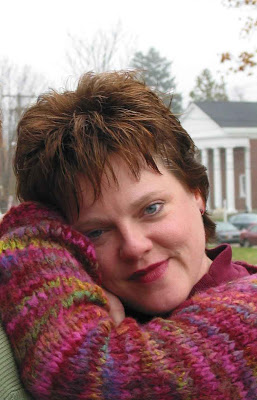
Ann Hagman Cardinal is a freelance writer, novelist, columnist, as well as the National Marketing Director for Union Institute & University. Ann has a B.A. in Latino Studies from Norwich University and an M.A. in sociology and creative writing from Vermont College of UI&U. She is currently working on her MFA in Writing from Vermont College as well. Her column, Café Con Lupe, appears in the state-wide publication Vermont Woman. She just completed her second novel entitled La Mongosta & The Pirate and is hard at work on her third. She lives in Vermont with her husband Doug and son, Carlos. She is also the author of The Gift of the Cuentista, a breakout novel of depth, of roots, of Puerto Rican identity and and family. It is also the story of one's girl's odyssey to adulthood and the meaning of a very special gift of sight.
Ann is a sister of my heart, and she's also one of the Sister Chicas trio of authors. Leni was written by Ann as wry, tough/tender, with a soul deep as a hidden aquifer. This too, is Ann.
xxxxxxxxxxxxxxxxxxxxxxxxxxxxxxxx
Describe your journey in becoming a writer. How is it integrated with your identity as a woman, as a Latina? Can you talk about your major influences, both personally and in a literary sense?I never imagined I would be a writer until I returned to college as an adult student. Even then, if I
hadn’t have been at a non-traditional program where I was exposed to other students doing different kinds of studies I’m not sure I ever would have become one. I met some wonderful writers who encouraged me, and after a year of insisting, “I’m not a writer!” I got the bug. But it was inspired by my desire to pass on elements of my
Puerto Rican heritage and mother’s family to my son, Carlos. He never got to meet his
abuela, so it is a way to put him in touch with her. And it’s helped me identify with those roots as well.
The
cuentistas in my family, the storytellers that came before were my first influences. After that I was completely enthralled by Isabel Allende with her lyrical and beautifully written novels with their powerful political subtext. Also, Julia Alvarez is a wonderful writer, and I like that she publishes in different genres: novels, memoir, poetry, children’s literature. And Judith Ortiz
Cofer, I was so taken with Silent Dancing, I
didn’t realize it was a young adult book until after I read it. She has just the kind of clean but
elegant prose I admire.
What differences do you experience as a novelist vs. writing as essayist/columnist/journalist? What parts of yourself take the foreground...the background when you work in different genres?Good question. Well, as a novelist the answer depends on which novel I’m working on. I write literary fiction, but I love to write genre as well, horror, romance. These work different muscles than their literary sibling. The literary fiction is more taxing, pulling from a deeper place, while writing genre for me is pure joy.
As a columnist/journalist I feel like I am more of a sociological observer, mining stories and ideas from every day life. With my column
Café Con Lupe, I like to talk about things that resonate with people on a universal level. Not each column reaches everybody, but when I get feedback from someone who says, “Your story made me think of the time my own mother…” I love that! That means I’m reaching people, and really, that’s why I write.
What would you describe as your major themes? Issues of
outsiderness. As a light-skinned half
Puerto Rican I never felt totally at home in either world, and I’m amazed at how many people feel this way for different reasons. As I titled my most recent short story, I feel like a “Fish Out of
Agua.” In addition, I often write about children who lose their parents at a young age. Having gone through that I know that this is a loss only someone who has experienced can understand. It defines you as a child and as an adult. Also, I love to write about la
isla. That island and my family there are so damn important to me; they offer me a way to keep in touch with my mother.
What do you feel are your strengths as a writer....where would you like to see yourself grow?I’m a very visual learner, so I see things clearly in my mind as I write them. I’
ve been told that adds visual texture to my writing. I also love to write dialogue, and I listen intently to the way people talk and attempt to capture that.
As for growth, I’
ve learned so much over the last two years of my MFA program, I think my brain is full! But there are so many ways I would like to grow. I’
ve been trying to tackle short stories this last semester, and that is going to be a lifelong challenge as I find it a difficult form.
We collaborated in writing Sister Chicas... how would you describe the impact in crafting a novel in that way?
In past interviews I called it miraculous, and that has only become truer with time. To be able to learn from each other, and grow as a writer because of my connection to you two made it a
transformative experience. And it continues to amaze me that we were able to do it, no egos in the way, supporting each other with love and sisterhood. Miraculous.
You've made a choice to live in VT as a NYC transplant....How has that choice affected you life? Your writing?It’s funny, I
didn’t really identify with my Latina side until I moved here and the culture was no longer readily available. In NYC, I could walk down the street and hear
Boricua Spanish, smell
tostones frying from an open window, hear meringue pulsing from a car window. But in Vermont I have to actively seek out other Latinos. That has made for some incredible connections, including meeting you and Jane! I’m also not sure I would have become a writer in NYC, it was finding a progressive education program that opened me up.
I love it here. My mother used to say it reminded her of
Puerto Rico in the 30s with its rolling green hills, slow pace, and warm people. It’s a great place to raise a child.
You're a wife and a parent; in what ways do you feel those roles intersect with your life as a writer?I think it is impossible to separate them out. I learned when I went to a writer’s residency last year, and my son broke his arm and I
couldn’t be there, that I write better having him and my husband near me. I need to know they are safe and well to create. My son is the reason I write, really. My column deals a lot with my marriage and certainly parenthood. In that venue I aspire to be the modern Latina Erma
Bombeck. Life is so bizarre and humorous, and we all need our diversions. Her writing and viewpoint made day to day life lighter.
Where do you see yourself in ten years, personally and creatively?Still writing novels, and maybe with enough financial stability that I can do it more than on the fly. My goal is to not have to fit my writing in between everything else. To make it a main course and not just a side dish of my life. By then my son will be at college, and I hope to have a condo in
Luquillo so my husband and I can go down there for a couple of months each winter. Though I love Vermont, the 40 below zero thing kind of sucks.
What's something not in the official bio? I love tattoos. My sister was a tattoo artist and is getting me back into them in my middle age. They
ain’t what they used to be and I just wrote a piece for
AARP Magazine about the trend of getting tattooed after 50. Life is too short to not be inked.
xxxxxxxxxxxxxxxxxxxxxxxxxxxxxxxx
An excerpt from
The Gift of the Cuentista:
My mother's Uncle Javier lived next door, and I would spend each visit running back and forth between the houses with my
Puerto Rican cousins, skinning my knees and pulling my second language out from under the cedar blocks of winter storage in New Jersey, where the only Spanish I heard was at the local bodega where Mom bought her guava paste. After a few days of shyness, I would begin to feel comfortable with the other children, following along where they led, playing the games they played.
But among them I always knew I was different: larger, pastier, louder. I longed to be like them, switching so easily from elegant
Español to an English that was more grammatical than my own. I watched their lithe bodies move easily among the adults, answering questions about school with enthusiasm, joining the conversations about art, culture and history. I sat on the periphery of these gatherings feeling thick-tongued and unable to speak in either language, watching the adults throw their heads back in laughter over something my cousin Maria had said. I looked at my play clothes that had seemed fine alongside the neighborhood kids in New Jersey, but on the island felt shoddy and mismatched; at my
un-groomed hair, too short and boyish.
When my visits expanded to the entire summer, I learned to adjust to my life on the island, and then back again when I returned to our cold suburban home. Sometimes, on the flight home in late August, I would think about how I seemed to be most comfortable there, among the clouds high above the Atlantic Ocean, halfway between the two places.
My cousins did their best to make me feel welcome on their island. They were, quite honestly, much nicer children than I was. They were always polite, always thoughtful, and I would try to emulate them after I left each year, but this unnatural decorum would usually only last a week…maybe two. They were all about my age, and together we ran through Javier's one-story, concrete house at top speed, sliding over the slick, tiled floors, as adult reprimands in rapid-fire Spanish trailed after us like a kite tail. We had to pass through the last room, a bedroom, before we broke free of the building and barreled into the back courtyard, scattering chickens and dust in every direction.
The first time I encountered one of the room's inhabitants, I stopped short at the threshold, staring at the unexpected occupant on the shadowed bed. My cousins collided into me from behind, and seeing my apprehension they said, “Don't worry about her,
prima,” as they pushed around me and pulled at my arms, taunting me to follow them through the darkened room. “She can’t hear you.
Vamos!”
I could smell the room before I entered it. Medicinal. Antiseptic. Stale. I pulled free of my cousins, my feet rooted to the
doorsill, hearing their jeering voices fade as they scampered out into the daylight. I looked down at the scrubbed white Formica floor, the gray and blue dots forming moving patterns if you stared at them long enough.
Tía Lourdes made sure the room was spotless. She had been a nurse, and so the care of the infirm family members often fell to her. The lights were low, the bright afternoon glare permitted entry only through the wooden louvers that covered the windows, a narrow stream of sunshine spilling through the partially open back door, still swinging from my cousin Carlos’ escape.
A large wooden crucifix was the only decoration on the white stucco walls, the graphic dying figure of Jesus a ghastly contrast to the room’s sterility. Because of the near darkness, it was at least ten degrees cooler than anywhere else in the house. And there she was. An ancient female relative—my cousins
couldn’t even tell me whose—or the shell of one, lying on the bed to the left of the door, connected to a maze of medical tubes like the tentacles of a pale jellyfish. I could feel a current of anxiety running through my limbs. After a time, I decided I would steal quietly but quickly through the room, not looking over at the bed. I made it halfway across when a crackly voice emerged from the still, waxen figure under the white chenille bedspread.
“¡
Ay Virgen! ¡
Madre de Dios!” she yelled. I jumped and tore into the backyard, temporarily blinded by the summer sun, but grateful to be free. I avoided the room for the rest of that visit. Not because I thought I would disturb her—she was completely unaware of the youthful activity around her—but because I felt a reverence in the presence of one whom my cousin Inez told me was so near death. But also a fascination. I would occasionally peer through the slatted windows from the safety of the concrete courtyard, the sun on the back of my head reminding me that I was still outside the room, away from her spell.
But she was just the first: every year from then on there seemed to be a new old lady lying sentry in the rear chamber. To my cousins, these women barely existed. Each day they screeched through the room, bellowing to each other along the way. But it was easy for them. They
didn’t have to worry about the old woman coming back to them after death: that honor was reserved for me.
xxxxxxxxxxxxxxxxxxxxxxxxxxxxxxxx
Some last thoughts: In
Gift of the Cuentista, Ann paints a picture of a young girl's struggle to know herself, to know her family, to be comfortable in her skin literally and figuratively that burns itself into the mind's eye. In this passage alone, we taste, see and smell this small universe in which someone looks for home and begins to see out what a long, long, trip it truly is.
Lisa Alvarado

By: Lisa Alvarado,
on 6/13/2007
Blog:
La Bloga
(
Login to Add to MyJacketFlap)
JacketFlap tags:
poetry,
community building,
women of color,
LGBT,
social change,
Tianguis,
Viramontes,
scholarship,
affinity,
Latina,
Add a tag
I wanted to help La Bloga celebrate LGBT Pride month by profiling Amigas Latinas, an affinity group here in Chicago and one of its founders, Evette Cardona. I was lucky enough to meet Evette through her partner, Mona Noriega, both of whom have done groundbreaking work in the Latina and queer communities, with local and national impact. As a typical example of the kind of support the organization offers, when I, Ann Cardinal and Jane Alberdeston Coralin launched the release of Sister Chicas in Chicago in 2006, the Amigas were in full force at a reading they co-sponsored with a landmark Chicago independent bookstore, Women and Children First. With love and gratitude, I offer this post.
Find out more about this remarkable woman who is also an inductee in the City of Chicago Gay and Lesbian Hall of Fame and this vital organization.
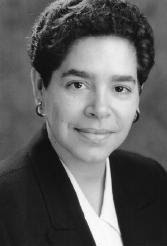 Evette Cardona
Evette CardonaEvette Cardona's lesbian activism began in 1993 when she came out "publicly" and became a founding member of WACT (Women of All Cultures Together), a gathering of lesbians, bisexual women, and heterosexual women allies taking advantage of Chicago's diversity to bridge racial, ethnic, and cultural divides. The group has held monthly potluck brunches throughout the Chicago area. During Cardona's tenure with WACT, over 70 brunches gathered suburban and city lesbians together.
As an organizer, she has helped to lead or found several community groups, including Women of All Cultures Together, Amigas Latinas, the
Lesbian Community Cancer Project, and the
Center on Halsted Steering Committee. As a philanthropic administrator, she has been especially helpful in funding organizations serving historically underrepresented community sectors.
In the summer of 1995, Cardona helped to found Amigas Latinas as an organization for Latina les/bi/questioning women. Through a model of monthly dining and discussion groups, the organization has provided a celebratory environment for English- and Spanish-speaking women to learn about the Latina community's diversity. The group addresses such issues as immigration rights, language barriers, and homophobia in special relationship to ethnic discrimination. In 1999, Cardona helped to create the Aixa Diaz Scholarship Gift Fund, named after an Amigas Latinas founder, to aid a Latina lesbian or bisexual student fighting high school homophobia and to aid children of Mozart Elementary School, where Diaz had taught first grade.
In 1997 Cardona became a member of the planning council of Color Triangle, a consortium of persons from various organizations who meet to discuss racism within the Chicago lesbian, gay, bisexual and transgender (LGBT) community. She also co-chaired the Leadership Development Institute, designed to foster leadership in Chicago's LGBT community.
In 1998, Cardona joined the board of the Lesbian Community Cancer Project, which addresses lesbians' and women's health issues. In the autumn of that year, she aided in producing El Sexto Encuentro, the annual conference of LLEGO, the National Latina/o Lesbian, Gay Bisexual and Transgender Organization, which was hosted in Chicago.
Most recently, Cardona has become a member of the Center on Halsted Steering Committee, which in conjunction with Horizons Community Services is developing a community center that is anticipated to open in 2004. The committee is seeking community suggestions and involvement.
Professionally, as a Senior Program Officer at the
Polk Bros. Foundation, she co-chaired the Funding Lesbian and Gay Issues Group of the Donors Forum of Chicago, which is a regional association of grant-makers. She is a current board member of the national Funders for Lesbian and Gay Issues and is an executive committee member of Chicago Latinos in Philanthropy. She received a master-of-arts degree from the University of Chicago's School of Social Service Administration in 1998. In 1997, Cardona received a Leadership Award for Community Service from Chicago's Association of Latin Men for Action (ALMA). In 2001, the American Civil Liberties Union of Illinois presented her one of its annual John R. Hammell Awards for her work in the LGBT community.
xxxxxxxxxxxxxxxxxxxxxxxxxxxxxxxxxxx
What is Amigas Latinas, and what need did it meet for Chicago area Latinas?Amigas Latinas is a support, education and advocacy organization that provides safe spaces, educational opportunities and resources for Latina women who love and partner with women to explore, challenge and celebrate who they are as women, as mothers, as daughters, as comadres.
The need we fill is both to offer space for women to understand and explore their lives at the intersection of their identities - Latina and woman-loving-woman at the same time to just be in the same space as other women like themselves, speaking the same language and sharing
the same culture.
Can you talk about its constituency and the ways the organization is representational? What kind of outreach does Amigas do to meet its goals? Platicas? Events? Socials?
Our membership is close to 300 women from all Latina cultures and all ages. Our diversity spans the range from third-generation, monolingual English speakers to recently-arrived, monolingual Spanish immigrant women. Many are newly out, many have been out for years and years and seek us out for the friendships and affinity we provide. About a third have children from previous heterosexual marriages, some are still in heterosexual marriages, some have disclosed issues of domestic violence and struggles with alcohol/substance abuse.
In the past several years, we have seen a 50% increase in the number of immigrant monolingual Spanish-speaking women seeking services that are non-existent due to a chronic lack of bilingual, bicultural service providers that are sensitive to sexual identity issues.
We mail to our membership of nearly 300 once to twice a month to advertise our monthly platicas, workshops and events, we have a listserve with about 200 women on it that is a great way to advertise quickly and broadly. Our web site is increasingly becoming a way for women to find us, too. We also advertise somewhat in the gay rags especially around special events, but we rely a lot on word of mouth. We have linkages with other lgbt organizations and are present at public events be it LGBT or Latino events to ensure the Latinaqueer voice is heard.
Aside from social contact and support, what kind of community building is Amigas involved with in both the Latino and LGBT community?We spearheaded the development of the
Chicago LGBTQ Immigrants Alliance (CLIA) to look at the challenges, myths and realities that arise at the intersection of queer and immigration issues. (We're planning a town hall for CLIA on June 12). We also helped create Entre Familia, the first Spanish-speaking PFLAG in the Chicago area. It's been meeting for three years. We partner with
ALMA ( a gay Latino men 's affinity group) to do that work. We also partnered with
Center on Halsted to start the first Latinaqueer youth group that meets monthly at the Center's facilities.
This January we launched our
Proyecto Latina survey to gather information about who we are and what our needs, dreams and challenges are. That data will be used to inform our future work mobilizing the Latinaqueer community to inform and challenge policyholders and legislators to respond to and improve our lives.
Our biggest non-queer partnership is with
Mujeres Latinas en Accion (a social service/anti- domestic violence organization) and we have annually provided trainings and education sessions to help their staff better serve Latinaqueer victims/survivors of domestic violence.
Talk in depth about the organization's scholarship activities and it's significance.
In 1999, Amigas launched the
Aixa Diaz Scholarship Fund in memory of founding member, Aixa Diaz, who brought vision and commitment to the Latina lesbian/bisexual community through her organizing efforts, and knowledge and encouragement to Latino children through her dedication as a teacher. Over the last 7 years we have raised money to provide financial assistance to a young, lesbian/bisexual student activist of Latina heritage entering or enrolled in college who actively works to fight homophobia in high schools. Awards have also been given to gay-straight alliances (GSAs) in high schools with large Latino student populations and to the Mozart Elementary School where Aixa taught first grade, served on the Local School Council and was the Chicago Teachers Union delegate.
This work reflects the commitment Amigas has to education as a means of empowering women. We have awarded 12 scholarships ($1,000 - $2,000) to date and will award 3-4 scholarships this June. Our biggest success with the scholarships was last year when we brought on a 2004 Aixa Scholar, Zaida Sanabia, to head up our youth group efforts. She has been a wonderful addition to the Amigas family and is doing excellent work reaching out to Latinaqueer youth.
There are been much invisibility in the Latino community for women who love women. How would you describe the importance of LGBT reality to our people.Amigas is built on the philosophy that as Latinas who love and partner with women we cannot separate our identities and often are asked to do just that throughout our lives. Coming out is a life-long process and being able to successfully blend our identities to live as healthy and complete persons in our families, work environments and communities is the reality we strive for with every activity we provide. As our vision statement proclaims we "celebrate our lives with pride and acceptance, without boundaries or limitations, fearlessly and unapologetically."
xxxxxxxxxxxxxxxxxxxxxxxxxxxxxxx
Take a look a some photos from Amiga's events!
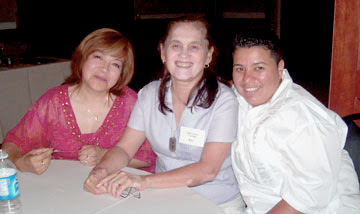
Amigas 11th Anniversary celebration
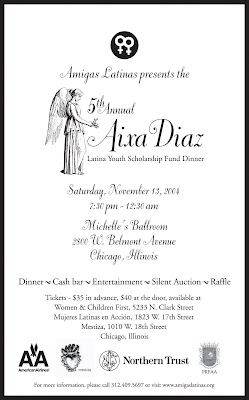
Aixa Diaz Scholarship Dinner invitation
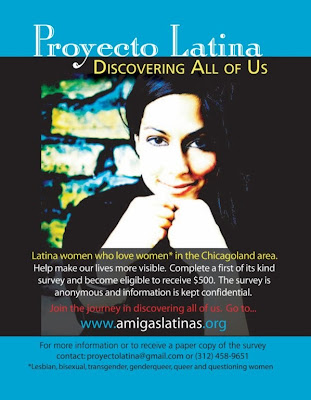
Proyecto Latina Surveyxxxxxxxxxxxxxxxxxxxxxxxxxxxxxxxxxxxxx
Other News: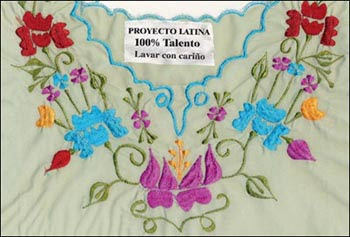

Tianguis books|libros 2003 S. Damen Chicago, IL 60608 www.tianguis.biz
About Proyecto LatinaProyecto Latina is a collaborative between
Teatro Luna,
Tianguis, and Mariposa Atomica Ink. We are excited about showcasing Latina talent and are always seeking outgoing Latina poets and performers for our monthly open mic series. Proyecto Latina takes place the third Monday of every month. Its an open mic so everything's game: Poetry, spoken word, music, monologues, shorts y en el idioma que prefieras. And if you're too shy to get on stage come and be one of the lucky spectators.
Proyecto Latina -- Recent and upcoming performers/2007 Calendar --- Mondays at 7 p.m.
January 15th:
Diane HerreraFebruary 19th:
Luna Blues MachineMarch 19th:
Silvia RiveraApril 16th:
Sylvia ManriqueMay 20th:
Paloma Martinez-CruzJune 18th: Lisa Alvarado.........it's shameless self promotion, forgive me....more dates coming soon...
And, again, DO NOT MISS THIS READING:Please join PAGE in welcoming three outstanding writers
to our last reading of the season:
MIN JIN LEEFree Food for Millionaires(Warner)MANUEL MUÑOZThe Faith Healer of Olive Avenue(Algonquin)andHELENA MARÍA VIRAMONTESTheir Dogs Came with Them(Atria)*
Thursday, June 14, 2007
7:00 p.m.
The National Arts Clubfree and open to the public
open bar and refreshments
books sold at a discount
jacket requested
*
The National Arts Club * 15 Gramercy Park South * NYC 10003PAGE is directed by Fran Gordon and Wah-Ming Chang.
For more information,
please e-mail
[email protected]or go to
http://pageseries.wordpress.com.
*
Lisa Alvarado










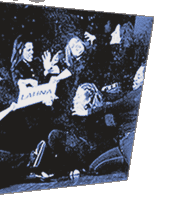





















Lisa, what a wonderful roundup! Mil gracias.
Yes, your post makes me wish I could be there.
RudyG
Daniel, RudyG and all you other lovely Blogueros---
I'd love to give you a tour of Chicago any time! : )
Lisa